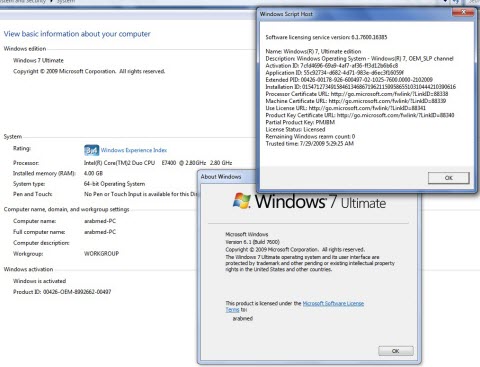Windows 7 activation ... FAIL!

Microsoft's activation and Windows Genuine Advantage mechanisms do little to prevent piracy. Exhibit A: Windows 7 activation mechanism cracked weeks before the release of the OS.
What's interesting about Microsoft's anti-piracy moves is that despite all the posturing and puff, at no point during the Vista lifecycle so far have pirates NOT been able to successfully bypass Windows Genuine Advantage. Sure, a few of the loopholes have been shut, but for every loophole blocked, more appear. This method will more than likely be blocked by the time Windows 7 hits the shelves, but it will be replaced by others.
The hack here seems to rely on a leaked Lenovo OEM master key. This allows a single key to activate many systems.
The idea behind Windows Genuine Advantage (WGA) is that customers are protected from pirates. In other words, users buying a new PC can feel confident that the OS they've paid for (or think they've paid for) is genuine and that Microsoft won't pull the plug on it at some point in the future. The reality is that the mechanism does nothing of the sort. Sure, Microsoft might be able to spot non-genuine systems at some point down the line, but by that point the customer has been ripped off. WGA is a mechanism for Microsoft to make money from by putting the squeeze on users rather than making it difficult for unscrupulous OEMs and repair shops to make non-genuine systems look genuine.
Microsoft should be doing more to prevent the bypass of the activation mechanism rather than catching people downstream of the bypass. After all, how are users supposed to know they have a non-genuine OS if the OS itself tells them it's genuine?
